SEEBEYOND
Overview
Our Vision is to create a level playing field to help food companies realise ambitious environmental goals and transition to sustainability.
The Environment Agency's SEEBEYOND project aims to improve the quality, transparency, and traceability of environmental data in the UK's Food and Drink Sector. It achieves this by standardising environmental metrics and data description to enable an automation of data exchange across different computer systems and platforms.
SEEBEYOND is researching and trialling future facing approaches to environmental reporting that goes beyond legislative compliance helping a transition to sustainabilty. These approaches expand on Defra's Food Data Transparency Partnership current areas of focus on Carbon emissions to include a broader scope of air pollutants, water quality and consumption, waste including food waste and materials usage.
Our findings from SEEBEYOND will feed in to inform future work of the Food Data Transparency Partnership via membership to working groups. We are seeking to align and complement existing reporting platforms.
How Food Companies Can Better Measure Their Sustainability (hbr.org)
Barriers to improving environmental performance
- 79% of 101 surveyed food businesses indicate that data challenge is the biggest barrier to measuring their environmental performance of businesses of all sizes
- With so many metrics, food companies find it difficult to distinguish their genuine improvement of performance from 'greenwashing' activities
- Many food businesses must report similar environmental performance data to multiple stakeholders in different data structure, which is time consuming and costly for them
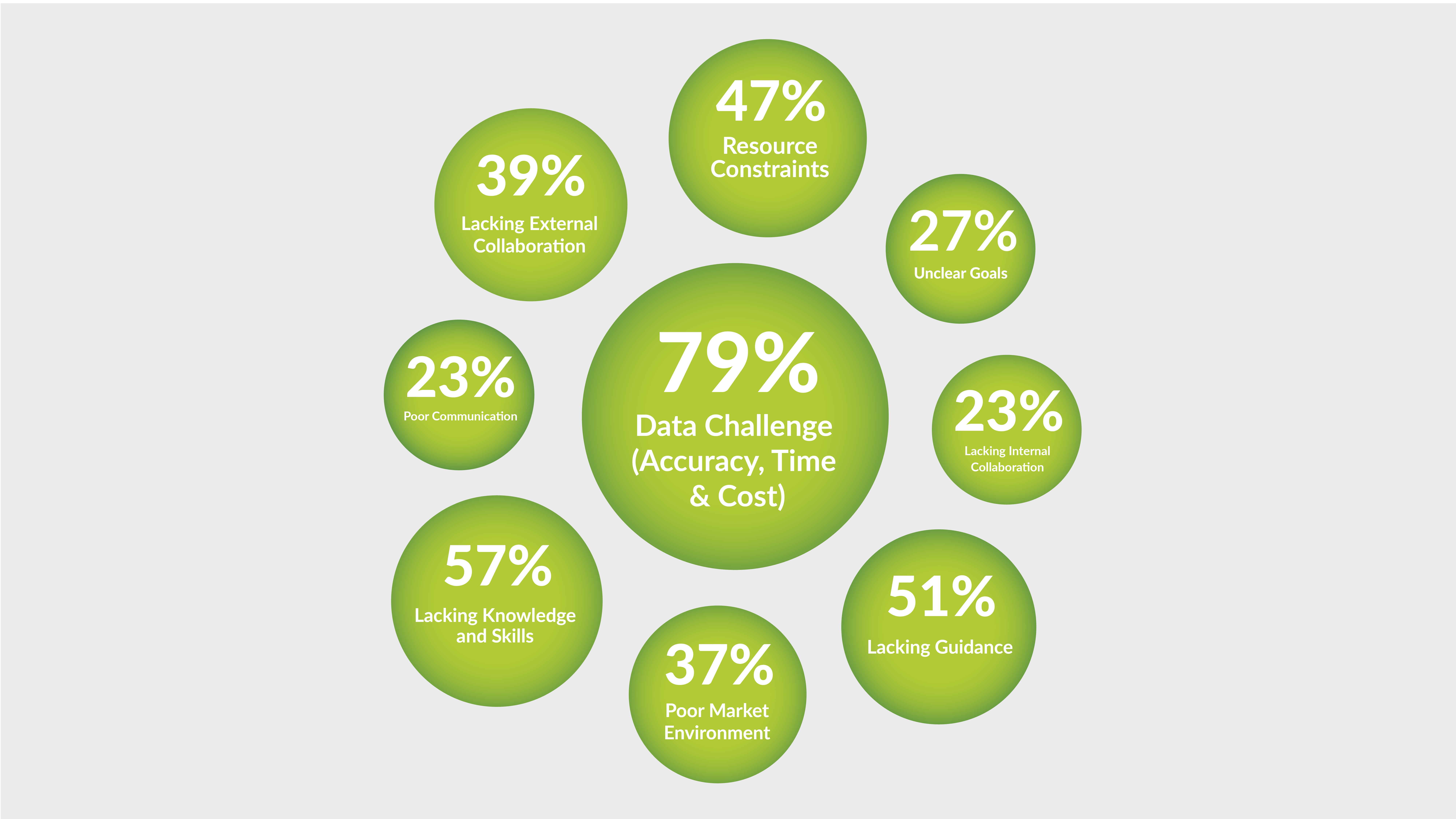
Supporting greater transparency, verification and automation of Environmental Reporting data
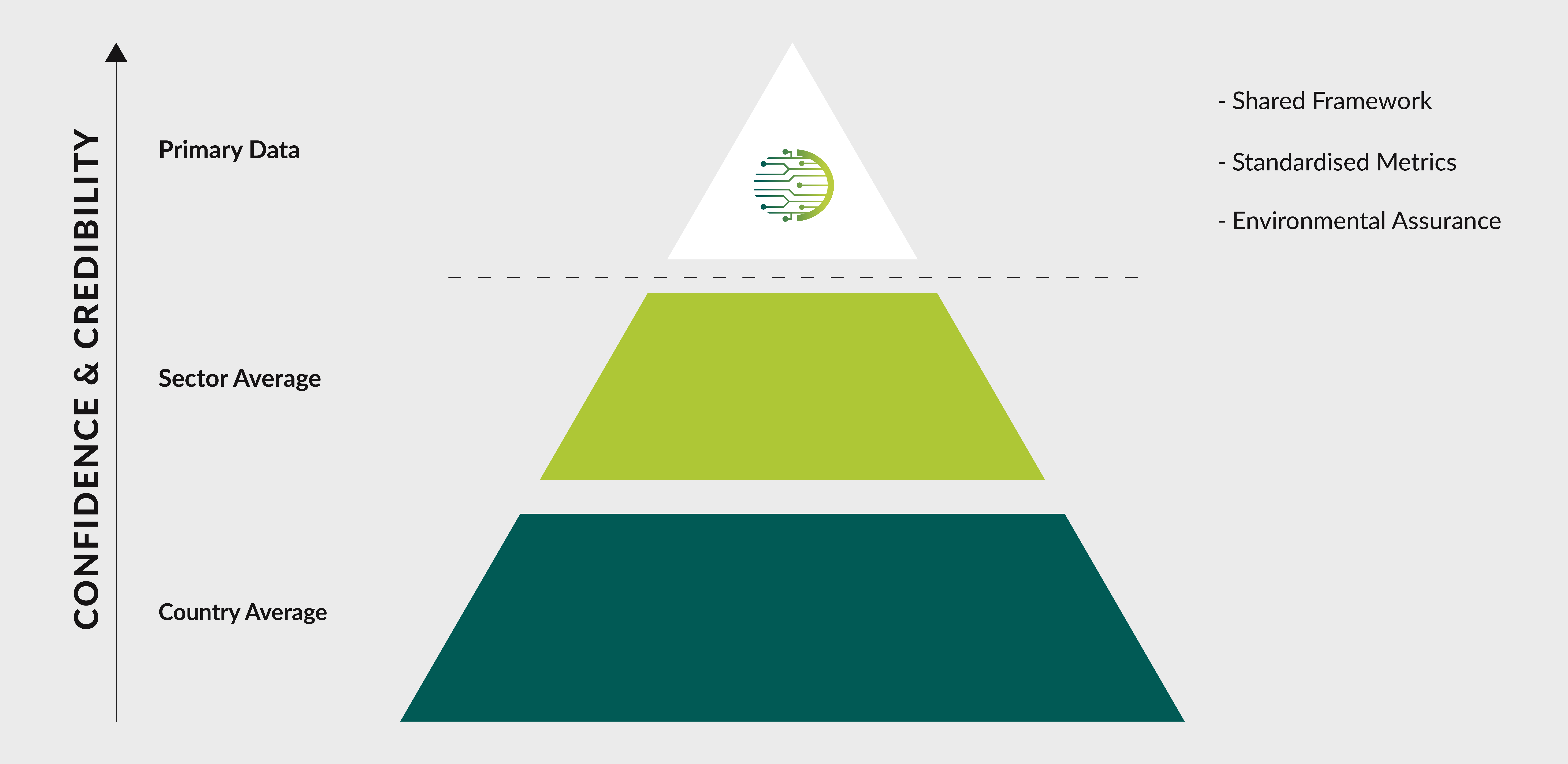
How are we doing it
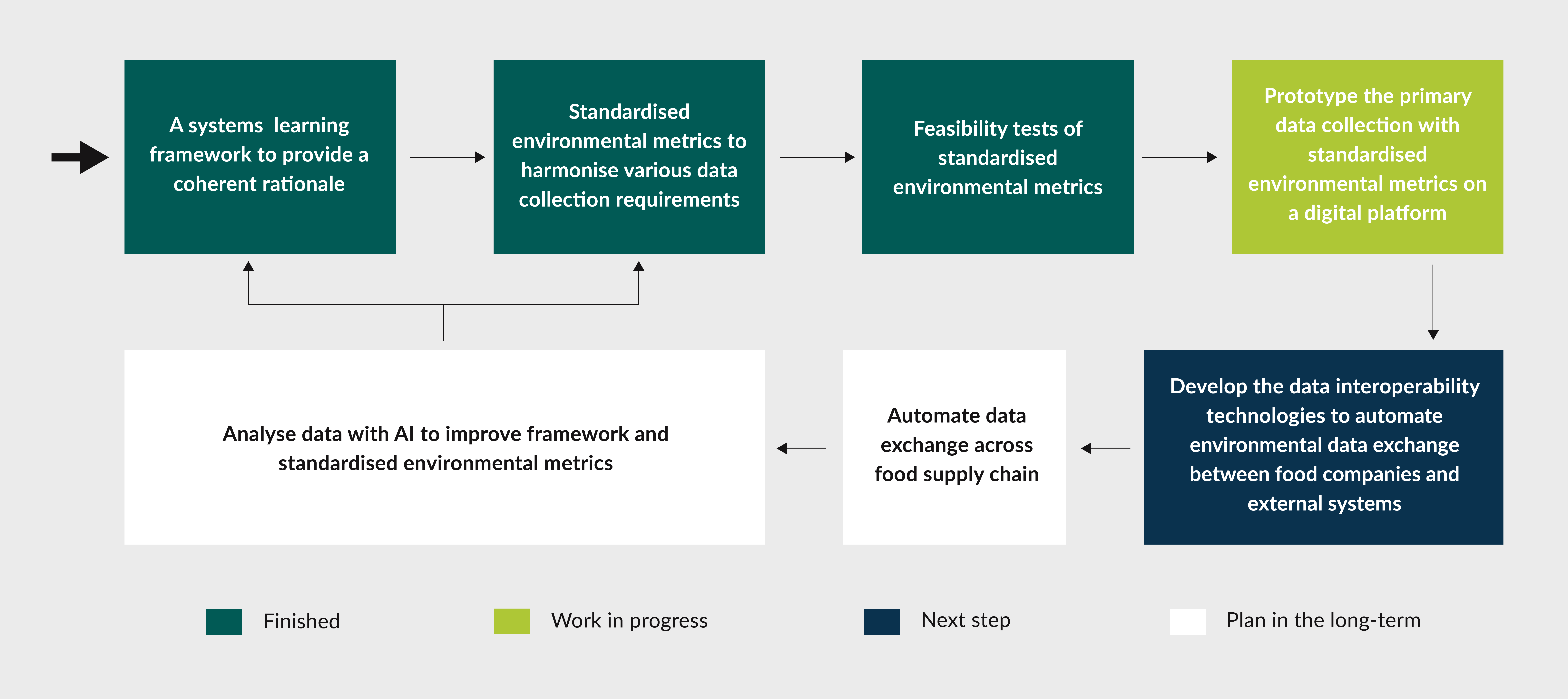
Source: Lili Jia
The first phase of SEEBEYOND established standardised environmental metrics based on comprehensive review of existing metrics, transparent assumptions, principles and a shared framework for food businesses to harness business value from improving environmental performance beyond legal compliance.
Standardised Environmental Metrics in Four Environmental Areas

The metrics are listed in the SEEBEYOND Phase 1 report appendix 2 here
SEEBEYOND is helping us to understand how regulators may facilitate companies to go beyond legislative compliance inline with Environment Agency's commitment in the latest Regulatory Statement. SEEBEYOND has also been identified within the new Green Finance Strategy as a potential tool to share learning and create alignment.
We are currently testing the standardised environmental metrics as part of the second phase. This will allow us to construct a standardised data scheme to enable automatic data exchange.
Our approach to improving data traceability of GHG emissions along the food supply chain (indicative)
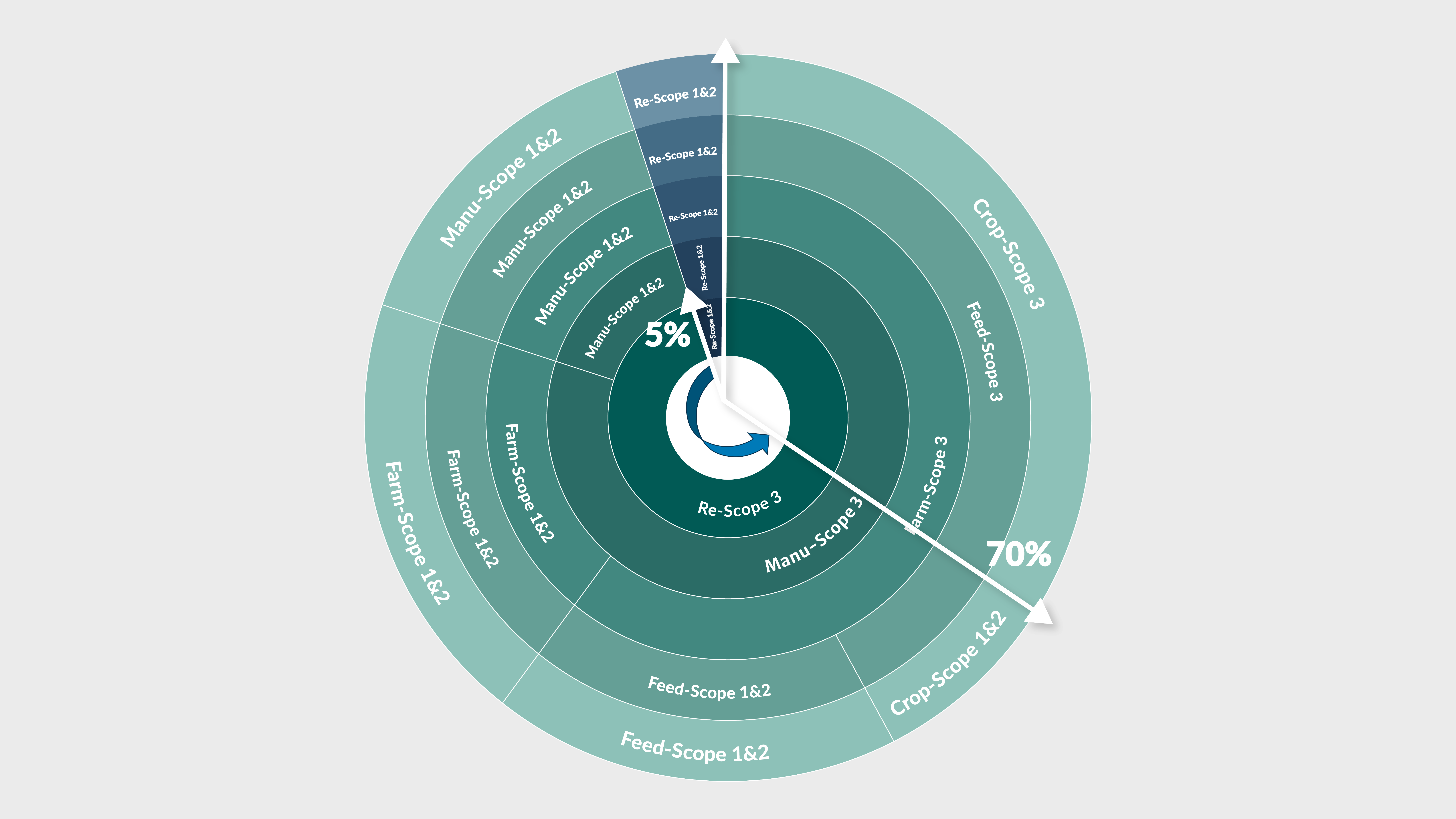
Source: Lili Jia
The diagram above illustrates a feasible enhancement of the data traceability of Science-based Targets (SBTs) Scope 3 greenhouse gas (GHG) emissions along the supply chain. Assuming that the Scope 1 & 2 GHG emissions of a poultry product contribute only 5% to its entire lifecycle at the retailing stage, with the remaining 95% attributed to the retailer’s Scope 3 GHG emissions, integrating the Scope 1 & 2 GHG emissions at each stage of the products lifecycle (including poultry manufacturing, poultry farm, feed manufacturing, and crop production) could result in the collection of 70% of GHG emissions to be collected from primary data sources. This integration would significantly increase both the quality and volume of primary data, thereby improving the consistency and accuracy of secondary environmental impact data.
Industry update webinar - 3 September 2024
If you would like to learn more or take part in testing then please email SEEBEYOND@environment-agency.gov.uk
Testing is not limited to companies who hold an environmental permit with a regulator, we want to gain feedback from a broad cross section of the food and drink sector.
The project is a partnership with the University of Cambridge and supported by the other UK Environmental Regulators (SEPA, NIEA and NRW).
Audiences
- Anyone from any background
Interests
- Business and industry
- Water resources
- Water quality
- Waste
- Permits
- Environmental permitting
- Installation
- Specific projects, issues, or activity pages
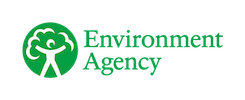

Share
Share on Twitter Share on Facebook